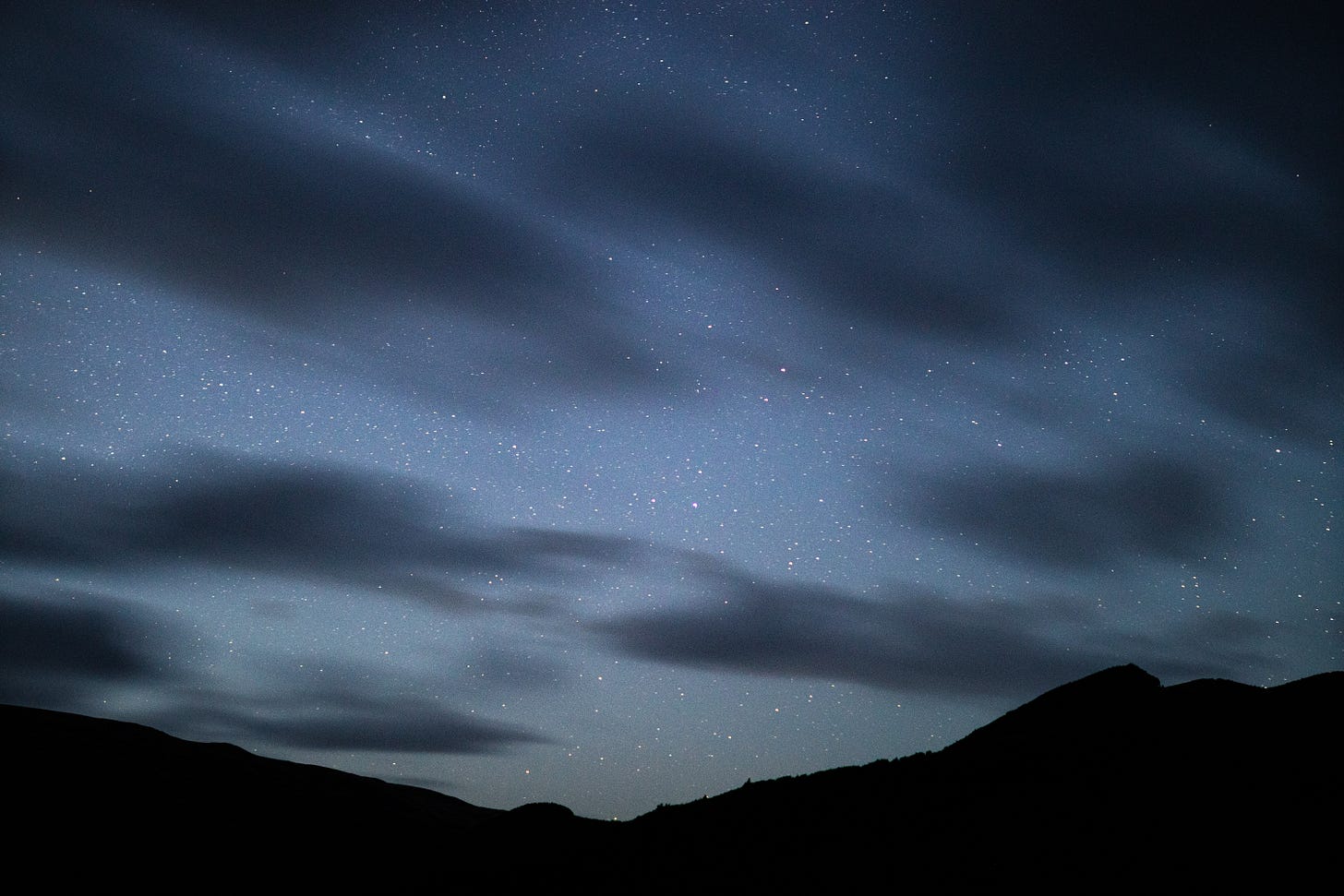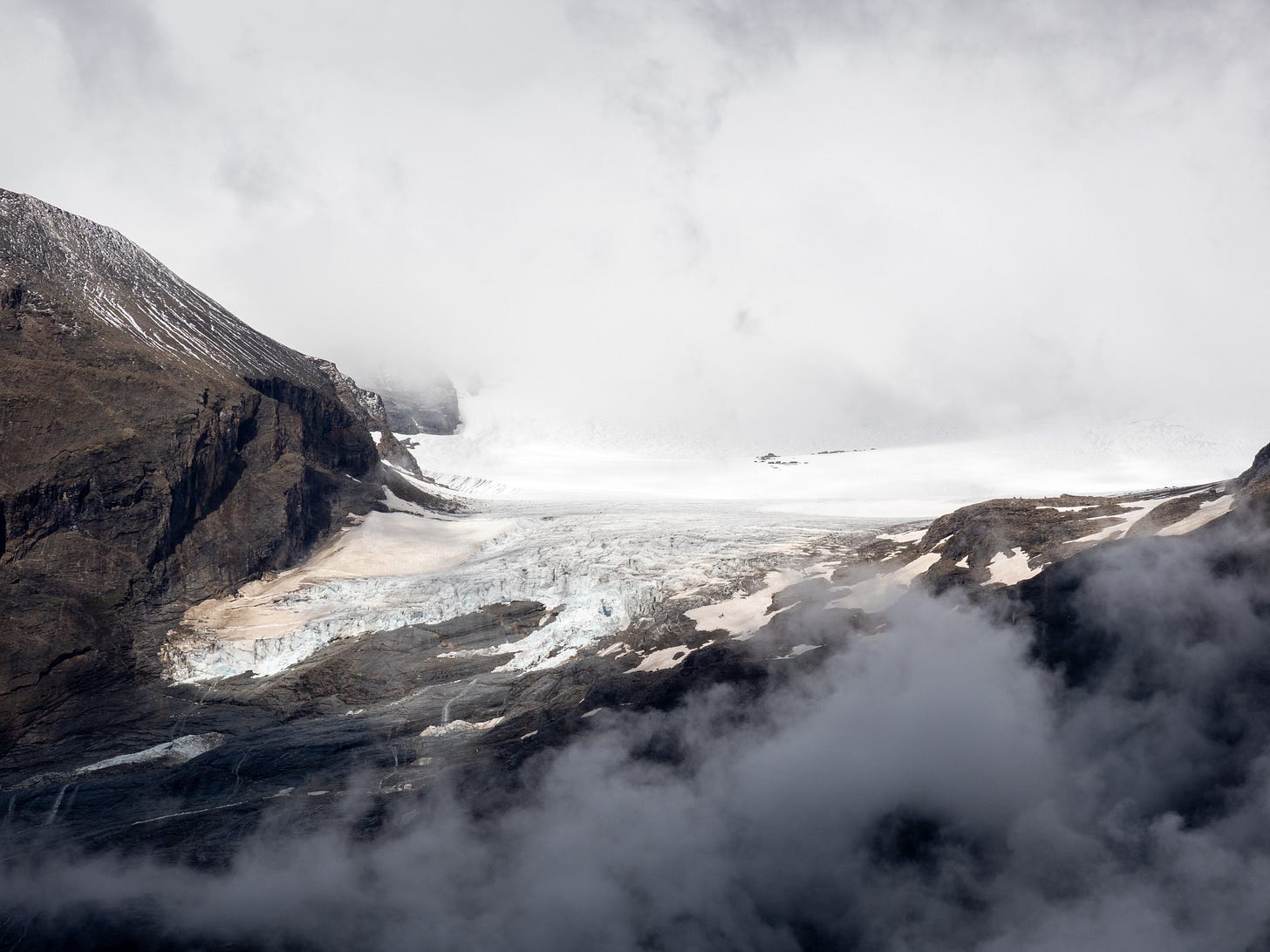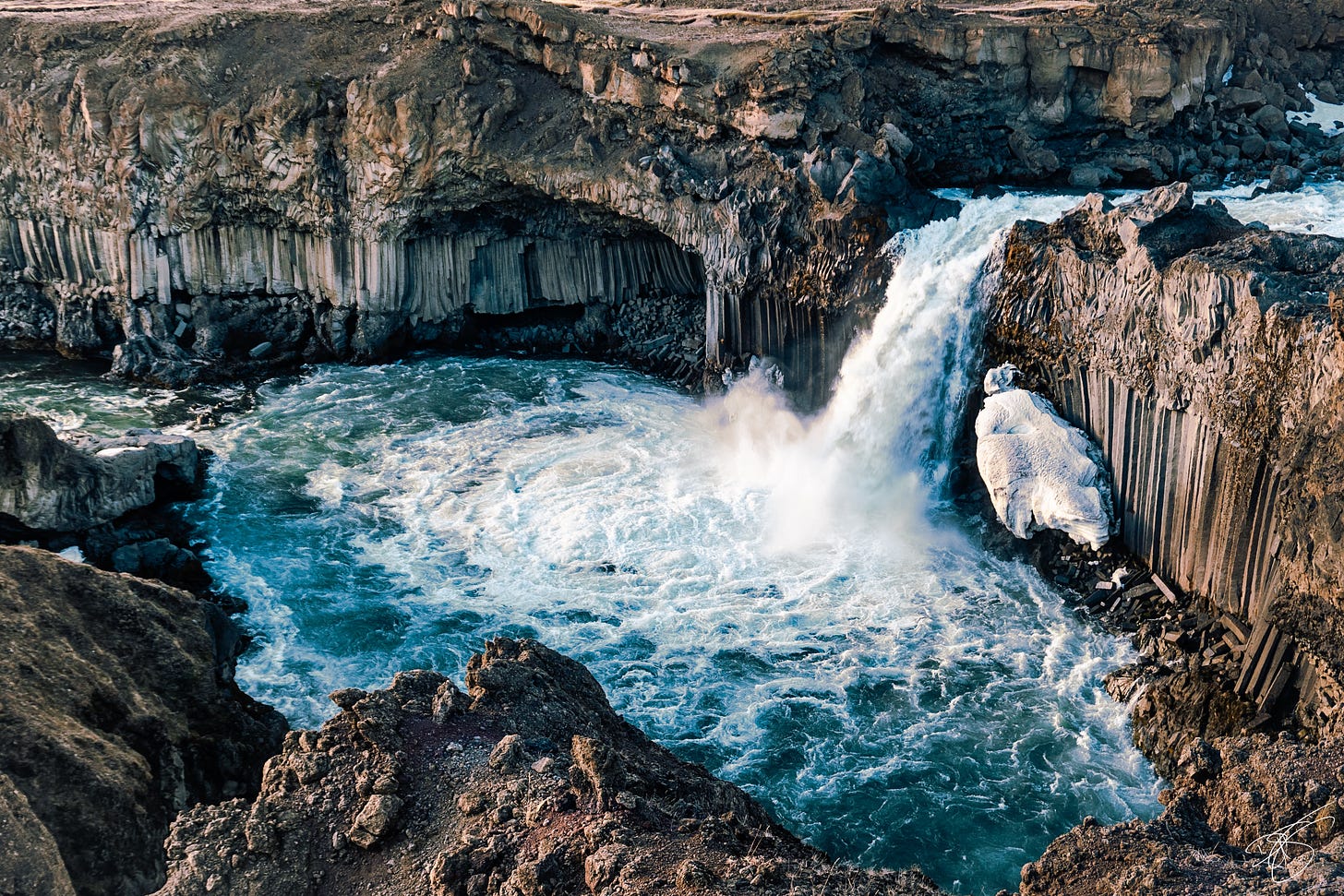
There are lots of emotions that really, really don’t feel good. Sadness, frustration, anger, disappointment. These emotions are all different but they are all consistent in the way that they leave us wanting, yearning. We can usually articulate these emotions pretty well as they seem to be logical for why we are feeling that way. We don’t usually wonder why we’re frustrated, sad, angry, or disappointed with ourselves, the world, or someone. And when we are pretty unsure of why we’re feeling that way, we can pretty easily contemplate what’s going on in our lives to determine the root cause of that feeling. It’s a skill to articulate emotions, and it’s one that we have to be willing to challenge ourselves on to get better at.
There’s something intimidating about contemplating our own emotions and their root causes. We know, unconsciously or consciously, what might happen if we delve deeply into our own psyches, our consciousnesses, our souls. We fear this intimacy with our own minds. We worry that if we explore the root causes of the emotions that we may learn something—about ourselves, those we love, strangers, or the world—that influences our past and future perceptions of life and the world. The act of contemplating one’s emotions for more than a brief moment isn’t unlike the act of contemplating one’s current job, or relationship, or religion, or friends; the more time we think about it, the more nuanced our perspective —and perhaps our disdain—of it becomes. This, in the long term, is a good thing: It’s through deep thought that we can actually challenge our preconceptions while also reconciling with painful experiences, and then ideally leverage that lesson learned towards a better future. It seems paradoxical, but the more we explore our emotions and their roots, the less emotionally and irrationally bound to them we become. It’s how one can both love their hometown and also desperately need to explore outward to more deeply understand life and the world. Contemplating life and our emotions is why I believe so many people are scared of therapy. Even though we’re struggling and our faults are on display every single day to others and ourselves, through therapy, we have to look ourselves in the face then deconstruct who we are.
It feels almost like science fiction that we can occupy our minds all day every day—this may be news to you but, so far, it’s only possible to occupy your own mind and you do that all the time—and still not know every inch of ourselves. Maybe it’s a defense mechanism; we’re afraid to peek around corners into the shadows of our minds because we may not like what the light exposes to us. And once we’ve exposed ourselves, there’s no turning back.
I’ve always been a thinker, but only recently have I become more introverted. I find myself enjoying peace, quiet, and time with myself more than I ever did before the pandemic. It’s nice to like yourself sometimes. But being by one’s self when things are good is offset a thousand-fold when a depression relapse occurs. And there’s not an emotion I dread more than the feeling of utter, total loneliness.
It took me a while to acknowledge that I had depression. I hesitated to get diagnosed or even identify as somebody with depression as I felt that my circumstances were never bad enough to warrant it. It was this survivor’s guilt that prevented me from a proper diagnosis. I worried that I was only feeling sorry for myself when I first experienced suicidal ideation. I allowed my sister’s death to be the experience that granted me the “life has been shitty enough to be depressed” card. It was dumb for me to be so hard for myself, but I am thankful that I eventually acknowledged it, began to get treatment, and then began openly talking and writing about it. But depression, like any chronic condition, ebbs and flows. Some days, weeks, months, life is good and there’s no depression in sight. That can change quickly.
I was in my hometown of Northern Kentucky this past weekend when I had one of the worst afternoons of my life. Perhaps there were some triggers, but nothing really bad happened. That’s usually how it goes. Sometimes the triggers are seemingly minor. It doesn’t always make sense. Sometimes I feel like the longer I go between episodes, the worse the impending episode is going to be. That’s what scares me. If the last episode is bad but I’ve been feeling okay for a few weeks or months, what is that next episode going to be like? What if it’s the final one?
Depression bothers me more than CF ever did. I never really had something or somebody to be particularly mad about with CF. Trust me, I found excuses to be angry about life and the world and Mendelian genetics, but my anger was always fruitless. I found better consolation through channeling my CF anger into projects such as exercise or school or advocacy. Depression, as it’s a physical malady rooted in the brain, means my anger is wholly projected back into myself. During my episodes, I feel a deep sense of hatred towards myself. That hatred manifests as loneliness. In those moments, there isn’t much that I can do to feel whole again. The part that scares me is just how unhopeful I am whenever in the vice grip of a depressive episode. I know with total certainty the sun is going to rise tomorrow, but that doesn’t matter. My world is dark. I convince myself that I’m unloveable or worse, undeserving of love and compassion from myself and others.

It feels strange to feel alone in the place you’ve spent the majority of your life. Countless memories, hundreds of people I’ve shared memories with, endless connections to locations. You’ll probably be shocked to hear that I like to romanticize things. There’s this expression, apparently uttered by the philosopher Heraclitus:
“No man ever steps in the same river twice, for it's not the same river and he's not the same man.”
It’s a beautiful expression. Folks during Heraclitus’ time, most notably philosophers, they loved talking in short phrases to communicate these feelings of life. As a writer who tends to have a reputation for verbosity, I admire this approach to communicating emotions. My verbosity is either a testament to the complexity of emotions and therefore the need to allocate the appropriate amount of words to extract justtttttt the right feeling out of the reader, or it’s a cop-out. Emotions are stories, and stories aren’t books with an exact beginning and end. Stories bleed into our lives, both before and after their “beginning” and “end.” Like a spilled drop of ink on a page, unrestrained by borders. Maybe a better writer would be able to convey these complex emotions with a simple phrase.
Maybe I’m not being fair to my reader when I use hundreds or thousands of words. I could be trying too hard to tease out universal emotions through a combination of words on the page that will maybe impact your life. I think that gets to the heart of what I set out to do with my writing. Even when I want nothing more than to be dead, I can only think about how I am going to communicate this morbid feeling with the hope that maybe it will resonate with my readers, maybe my words can prevent their suffering and loneliness. That’s a bit of a lie; often, my writing is geared towards me. Through writing about my suffering, I hope to release it from my mind and work towards a life with a deeper sense of joy and understanding. I hope to find joy by writing about misery.
Back to Heraclitus’ poetic, romantic expression. Romance isn’t just about buying someone you’re affectionate towards flowers (which I highly encourage doing more often, including for yourself when you’ve had a rough day, especially you, cis men; flowers are pretty, just admit it). Romance is also reflecting and thinking about life in a grander way; it’s about trying to bridge disparate aspects of life and understand how they are connected. Every experience in your life is connected to every other experience, even if only because you were privy to both.
Consider the river in the expression. Two people are floating in a river; one person near the beginning and one person near the end. They don’t know each other, but that wouldn’t matter anyway. They are bonded by both being present in geographical features humans have designated as “one” due to its continuity at the same moment of time. But the water particles they touch are not the same, and there’s a good chance the geographical features of the two different locations are different, and the weather is probably even different and technically even the physical phenomenon of time is different in their two locations. The river is only the same because we consider it as such. Truthfully, neither the river nor moment of time between the two people are hardly the same at all.
Now consider two people in the same location in the river. The river, by most accounts, is the same, but the people are not. This is true of only us as well; If we return to the same spot in the river a month after our last time there, we are now only a fragment of the person we were back then. A month isn’t that long, but you’re now the person you were with another month of existence influencing your perception of the world. You’re also seeing the river in a different light as this experience at this same location compounds on your last experience. You have a memory of this place to reflect upon. The river has now changed, too; the sediment in the bed of the river has a month more of water cutting through, millions of organisms have passed through, flood or rainwaters have changed the current, other people have swam there.
This is how I view home in a physical sense. We may have “homes” in the sense of where we return to occupy after working or going to dinner, but we also have general location homes. Some of us have many homes, some of us have only one. Sometimes, as we grow older, we lose a sense of home entirely. We could identify home as the place where we feel the most comfortable. Home could be around a bonfire with dear friends and family, or it could be the sense of peace evoked when we skip rocks in a stream in the woods with our dog. No matter, home has a different meaning for everybody.
When I was in Kentucky feeling this suffocating sense of loneliness, I didn’t want to cure it by being around others. It felt wrong to bring this dreaded mood to somebody else’s presence and strangely, this sense of loneliness didn’t seem likely to be cured by anybody’s presence. I could’ve been anywhere on Earth — such one of my favorite places in the world — and still felt lonely.

I know there are people that care about me, that I could reach out to at any moment for a sense of comfort, of home, of compassion. But I don’t know that this cures loneliness. Loneliness is this fragile, strange experience that sometimes feels self-imposed. We could end up feeling lonely because a major life change has happened, or because we lost somebody we love, or a friendship doesn’t feel the way it used to feel. Whatever the reason, loneliness comes from a place of yearning. We humans love others and we love loving and we love being loved. We do love, even the worst of those of us. Few people wake up in the mornings with the sole intent of imposing harm; often that harm is a misplaced sense of love and the belief that loving someone sometimes requires hating or harming others. Even the worst of us are lonely, and I often wonder if that loneliness were ameliorated if we could bridge so many of our worse divides as a species.
Amidst my loneliness, I loathed myself as I berated myself for being ungrateful. How could I feel lonely when I have people around me that are good to me, I have a good job, I have support, and my hardships aren’t as bad as others? In a moment where I had only myself, I somehow managed to even alienate that final, fading candle until it was extinguished.
I spent a lot of time thinking about this loneliness and about myself. I thought about the countless others who were also probably dreading their lives at the same time as me. I felt sorry for them. I wanted to embrace these faceless strangers in my mind to let them know somebody loves them, or at the very least, somebody else understands. I couldn’t provide myself that same support.
We look outward for this sense of home; we cling to places, jobs, friends, relationships with the belief that these are what keep us sane and moving forward. Sometimes perhaps they are what motivate us and rarely they may be the point of life for us. But that sense of home can be demolished quickly when things change; places change, that relationship becomes terse and sad for weeks on end, jobs can change quickly, friends grow up and begin families.
When we look inward for a sense of home within ourselves, I fear we don’t allow ourselves that comfort. Maybe we fear that if we did allow ourselves that comfort, those things that we tell ourselves motivate us to live our lives would appear to be lies or, at the very least, not what actually motivate us to keep going. Or maybe we fear that, upon deeper inspection, we ourselves are inadequate to provide that sense of home, that we’re just not enough. Or maybe we just don’t think about it much.
This past weekend, I stood in the river that was once my home. That river has changed. So have I. I don’t really know what that means.
tl




Tre, I know I can’t really say anything you haven’t heard. But just know that I hear you and I’m here for you. Depression sucks. It’s hard and lonely and often times feels like there’s no way out. I’m sending you some love, bud.
P.S. as always, you always do such a fantastic job of capturing emotion with your writing and it really evokes that emotion in myself. Not an easy feat. It’s fun to see how far you’re writing has come.